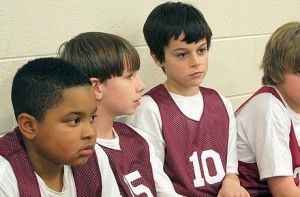Nipissing research supports all-boys schools
Improved attendance and engagement observed
russell pick/Flickr
Share

Research by Nipissing University professor Douglas Gosse shows that inner-city boys are more likely to succeed academically in all-boys classrooms and schools. From the release:
Gosse’s study involved four weeks of data collection in grades 7 and 8 in an inner city Toronto school. Most of the students were of African, Caribbean and South Asian immigrant backgrounds, where English is not the primary language at home. Many of the families live well below the poverty line. The study is based on in-school and extracurricular observations, interviews with teachers and the school principal, document analysis and a comprehensive literature review on boys and education from North American, Australian and British sources.
According to Gosse’s findings, minority boys in a single-sex classroom or school reap a number of benefits, including:
—enhanced engagement, participation, and sense of belonging
—fewer office referrals and better attendance
—a challenging of hegemonic masculine traits, such as homophobia and professed boredom with school subjects often dismissed as ‘gay’, ‘sissy’, or ‘girly’, including language arts and, especially, music
—greater opportunities for positive peer and male adult role modeling
Gosse’s study details five pillars for any successful effort to better educate boys, whether in single-sex or co-educational settings: (i) high expectations, (i) positive role modeling, (ii) high-yield teaching and learning approaches and strategies for differentiation, that reflect boys’ interests and modes of interacting, (iv) deconstructing the ‘cool pose’ and ‘boy code’ in curriculum in ways that do not pathologize males, and (v) a positive community ethos, environment, or climate. In addition to these five pillars, which work in tandem, a principal who is visionary, social justice minded, supportive, and hands-on, is indispensable.
Gosse contends that there is a deprivation of respect and love in relation to boys, in particular black boys, which starts at an early age. Parents-guardians and educators are afraid that unless they are tough on boys, the boys will become ‘gay’ or ‘less than manly’. However, this toughening up process impedes boys’ academic and social success in the 21st century. Gosse offers fresh perspectives for tackling the ‘cool pose’ and ‘boy code’ to which boys are constantly subjected, as well as practical suggestions for creating boy-positive educational programs.
The full report is available in August’s New Male Studies: An International Journal.